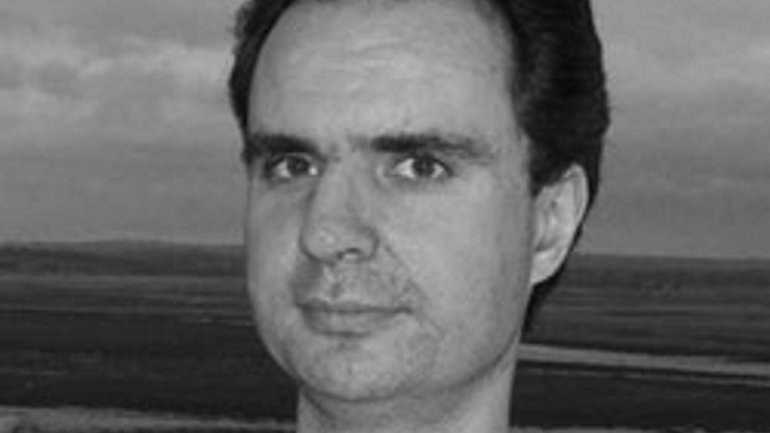Why Did the Patriarch Kirill of Moscow Agree to Meet with Pope Francis?

 A Primer in the Byzantine Politics of the Russian Orthodox Church
A Primer in the Byzantine Politics of the Russian Orthodox Church
We live in historic times. About a week ago, the leaders of the Orthodox Churches announced their commitment to hold the Pan-Orthodox Council on the island of Crete in mid-June 2016. The failed attempts to organize such a council for more than fifty years have been attributed to a variety of factors, most notably the rivalry between the Patriarchate of Moscow and the Patriarchate of Constantinople. The news of the upcoming Council has now been overshadowed by another sensational announcement that Pope Francis will meet with the Patriarch Kirill of Moscowin Cuba on Friday, February 12, 2016. Pope Francis’s predecessors, including John Paul II and Benedict XVI, made numerous requests for such a meeting, to which Moscow responded with inaction or rejection. What could possibly have changed Patriarch Kirill’s disposition? Why is the meeting happening now? What will be discussed at the meeting? What will be the meeting’s impact?
All politics is local, international church politics included. Patriarch Kirill has a low stake in fostering Orthodox-Catholic relations and a high stake in advancing his geopolitical vision of the Russkii Mir, or the Russian World. According to this vision, the Russian Orthodox believers represent an alternative civilization to the godless and decaying west. To meet with the head of an estimated 1.25 billion Roman Catholics around the world is to admit that the west is not uniformly godless, as the ideology of the Russkii Mir proclaims. In addition, the Patriarch is preoccupied with what he perceives as the encroachments of the Vatican upon his “canonical territory,” especially by the “Uniates” in Ukraine. The term “Uniates,” often used in a derogatory manner, refers to the Eastern Catholics in general and to the Ukrainian Greek Catholics in particular, whose Church since the late 1980s has undergone a revival and is now the largest body of Eastern Catholics anywhere in the world. Previously, Patriarch Kirill made the resolution of the Uniate problem his condition for meeting with the pope. Why has Patriarch Kirill decided to overlook this condition and meet with the “pope of surprises” now?
The principal reason is because the head of the Russian Orthodox Church wishes to be known as the “Patriarch Who Calls the Shots.” He likes to show his influence by dictating a place of the meeting. The recent Pre-Conciliar Meeting (Synaxis) was originally scheduled to take place in the residence of the Patriarch Bartholomew in Istanbul. Kirill told Bartholomew that the Russian delegation could not travel to Turkey, citing security concerns due to the worsening of Russian-Turkish relations. Bartholomew and the other primates obliged and hurriedly moved the Synaxis to Switzerland. The Pan-Orthodox Council was supposed to gather in the Church of the Hagia Irene, which is the historical site of the Second Ecumenical Council. Such a location would have had a profound symbolic significance, boosting the importance of the Patriarch of Constantinople. Moscow has vetoed this location under the same pretext. As a result, the Pan-Orthodox Council will be meeting in Crete, not in Constantinople. Some commentators are beginning to refer to it rather unceremoniously as the Council of Cretans.
As far as the meeting between Kirill and Francis is concerned, one might observe that it is the pope who is travelling from Mexico, where he will be on a pastoral visit, to Cuba in order to meet with the patriarch, who will be in Havana for business already. Again, the underlying message of the Russian patriarch to his fellow-primates around the Orthodox world is pretty clear: the councils and the popes must come to Kirill, on his terms, not Kirill to the councils and the popes. Crete instead of Constantinople, and Cuba instead of Mexico, are symbols of a power play in which the main plot is not the “Great and Holy Council” or Catholic-Orthodox unity, but the rivalry between Moscow and Constantinople.
Patriarch Bartholomew of Constantinople has a long-established record of ecumenical involvements, including several meetings with the popes. Such meetings are typically symbolic expressions of rapprochement, which raise the status of the Ecumenical Patriarch, who is as status-conscious as is the Patriarch of Moscow. The restoration of the Eucharistic communion between the Catholic and Orthodox Churches cannot come out of such a meeting, because no single Orthodox patriarch has the executive power to ratify such a decision. The meeting at the Havana airport will be no exception.
We are told that the Havana meeting will involve a two-hour-long private rendezvous between Francis and Kirill, an exchange of gifts (Orthodox patriarchs love gifts and the pope has a large museum of them), and conclude with signing a declaration of mutual cooperation. The private character of the meeting will enable the patriarch to present his personal interpretation of his conversation with the pope. Upon his return from Switzerland,Patriarch Kirill told the press that Patriarch Bartholomew publicly acknowledged in the presence of his fellow-primates that there was only one canonical Church in Ukraine, that of the Moscow Patriarchate. The statement was a clever spin of the Patriarch Bartholomew’s words, which expressed his general concern for the future of Orthodoxy in Ukraine. The Moscow Patriarchate’s claims to jurisdiction over the churches in Ukraine are historically contestable: the Kyivan Rus’ received its Christianity from Constantinople at a time when there was no Moscow. Patriarch Kirill’s claim to the “canonical territory” in Ukraine is contingent upon the Russian Empire, which is history, no matter how hard Putin and the ideologues of the Russkii Mir are trying to restore it by waging wars in Europe.
According to the official sources, the declaration of Orthodox-Catholic cooperation will involve such items as the support for the plight of Christians in the Middle East, the Syrian refugee crisis, secularization, and the Christian teaching regarding the family. These are issues of global importance that quite rightly require Christian cooperation. As far as the refugee crisis is concerned, the pope has expressed a personal desire that every Catholic parish in Europe and around the world accept a refugee family in its midst. In contrast, Patriarch Kirill’s attitude towards the refugee problem has been lukewarm, to say the least. His Russkii Mir has fueled Russian chauvinism and provided ideological support for the Russian military aggression in Ukraine, which generated two million internally displaced refugees. The Kremlin continues to do everything to distort and suppress this fact, and the patriarch is a major player in Putin’s propaganda war.
Only recently, a former spokesman of the Moscow Patriarchate, Fr. Vsevolod Chaplin, called Putin’s airstrikes against Syria a “holy war.” To date, these incendiary words have not been officially refuted by Patriarch Kirill, although he did take action to fire Chaplin from his position. The official position of the Moscow Patriarchate is that Russia wages a “just war” in Syria and that the war in Ukraine is a “fratricidal” civil war. Nothing could be further from the truth. It would be a shame if this position receives an indirect papal endorsement at the Havana meeting.
For Pope Francis, the Havana meeting holds a promise of fraternal cooperation with the leader of an estimated two-thirds of the global population of Orthodox Christians.For Patriarch Kirill, the same meeting is an opportunity to overshadow his rival Patriarch Bartholomew, on the international arena, and possibly to gain the Vatican’s stamp of approval on Moscow’s aggressive geopolitics. As Putin is redrawing the borders of Europe, Kirill is desperately trying to protect the borders of his ecclesiastical fiefdom in Ukraine. Both are running out of time, resources, and popular support.
The Byzantine Empire may be history. But Byzantine politics is alive and well in the Russian Orthodox Church.









